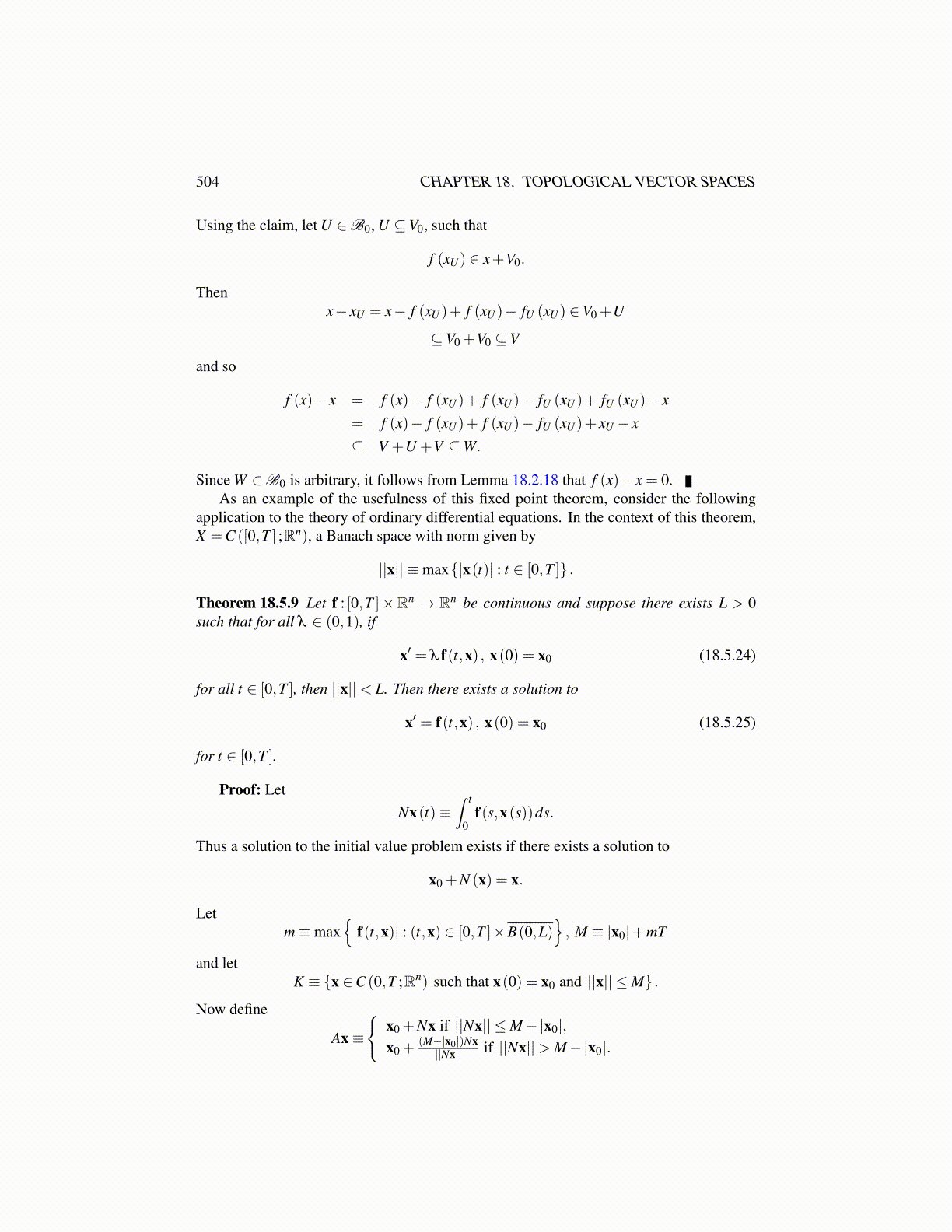
504 CHAPTER 18. TOPOLOGICAL VECTOR SPACES
Using the claim, let U ∈B0, U ⊆V0, such that
f (xU ) ∈ x+V0.
Thenx− xU = x− f (xU )+ f (xU )− fU (xU ) ∈V0 +U
⊆V0 +V0 ⊆V
and so
f (x)− x = f (x)− f (xU )+ f (xU )− fU (xU )+ fU (xU )− x
= f (x)− f (xU )+ f (xU )− fU (xU )+ xU − x
⊆ V +U +V ⊆W.
Since W ∈B0 is arbitrary, it follows from Lemma 18.2.18 that f (x)− x = 0.As an example of the usefulness of this fixed point theorem, consider the following
application to the theory of ordinary differential equations. In the context of this theorem,X =C ([0,T ] ;Rn), a Banach space with norm given by
||x|| ≡max{|x(t)| : t ∈ [0,T ]} .
Theorem 18.5.9 Let f : [0,T ]×Rn → Rn be continuous and suppose there exists L > 0such that for all λ ∈ (0,1), if
x′ = λ f(t,x) , x(0) = x0 (18.5.24)
for all t ∈ [0,T ], then ||x||< L. Then there exists a solution to
x′ = f(t,x) , x(0) = x0 (18.5.25)
for t ∈ [0,T ].
Proof: LetNx(t)≡
∫ t
0f(s,x(s))ds.
Thus a solution to the initial value problem exists if there exists a solution to
x0 +N (x) = x.
Letm≡max
{|f(t,x)| : (t,x) ∈ [0,T ]×B(0,L)
}, M ≡ |x0|+mT
and letK ≡ {x ∈C (0,T ;Rn) such that x(0) = x0 and ||x|| ≤M} .
Now define
Ax≡
{x0 +Nx if ||Nx|| ≤M−|x0|,x0 +
(M−|x0|)Nx||Nx|| if ||Nx||> M−|x0|.